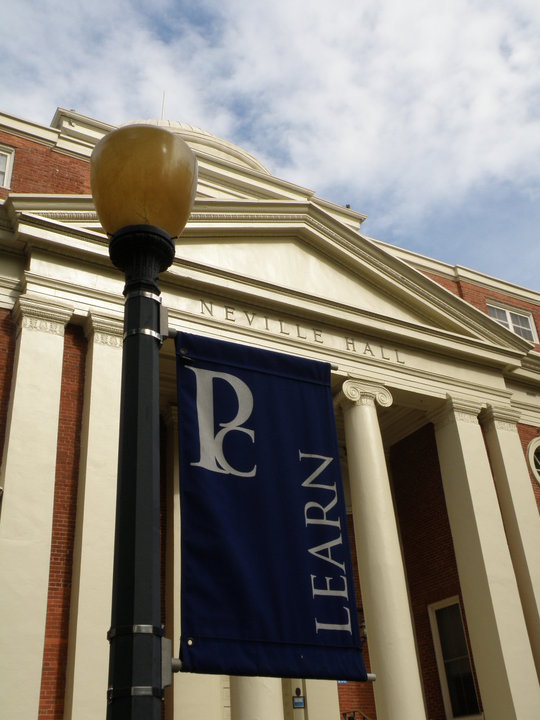Biochemistry Surprises
November 9, 2010
As some of you might know there is a new Biochemistry professor here at Presbyterian College. Dr. Shannon Alford applied to Presbyterian College knowing she wanted to work at a smaller school, and she had visited friends who went to PC when she was in high school. She expressed enjoyment when interacting with other Presbyterian College professors: “It was a really nice academic atmosphere.” So far she thinks the students are very affable, asking questions and saying hi as they pass. Other new professors have started a few classes from the ground up, like Dr. Stuart Gordon with Bioinformatics. When asked about any hopes for a new class, she said she would be excited to teach a class on molecular biology, and hopefully, this class will come to fruition.
The search that led to the hiring of Dr. Alford was as interesting as any hiring process. Previous years of searching had been fruitless, but this year PC got lucky. The Search Committee in charge of finding a new professor consisted of the Chemistry Department and a few outside members, including Dr. Ron Zimmerman and Dr. Gordon. The committee drew up a shortlist of about 10 people and narrowed it down to three candidates who were then invited to give a presentation at PC. Dr. Alford won out.
This recent addition might not come as a surprise to people who have taken biochemistry. The past two teachers were Dr. Wally Ott, our Organic Chemistry teacher, and Dr. Zimmerman, our Cell Biology and Immunology professor. They both taught Biochemistry I and II respectively. Dr. Ott has become increasingly burdened with a growing demand for his Organic Chemistry class, and he currently teaches two sections of the class and three labs. The new hiring has freed Dr. Zimmerman to teach Immunology every year, rather than alternating it with Biochemistry II.
In addition to relieving the workload of both professors, Dr. Ott expressed a hope to establish a Biochemistry major, noting that other schools placed an emphasis on the subject, and prospective students had expressed interest in biochemistry as well. The new major could even be a desirable option for future medical students, since a Biology major requires superfluous courses on plants and evolution, among other biological topics unlikely to be encountered in medical school academia. However, Dr. Ott mentioned that majors would probably need two semesters of calculus, an instrumental course (for the proper use and measurement with lab instruments), and at least a semester of Physical Chemistry. “It won’t be easy,” he said. Related Biology department classes could be Genetics, Cell Biology, Immunology, Bioinformatics, and maybe Molecular Biology if that materializes. Dr. Latha Gearheart worked very hard to examine what other schools have for their Biochemistry curricula and what grad schools expected of Biochemistry majors. There will be a meeting this Friday on September 3, 2010, between the Biology and Chemistry departments to work out the specifics of the proposed major. Later in the fall, Academic Affairs will decide whether or not it will work. If all goes right, we could have a new major as early as next school year.





